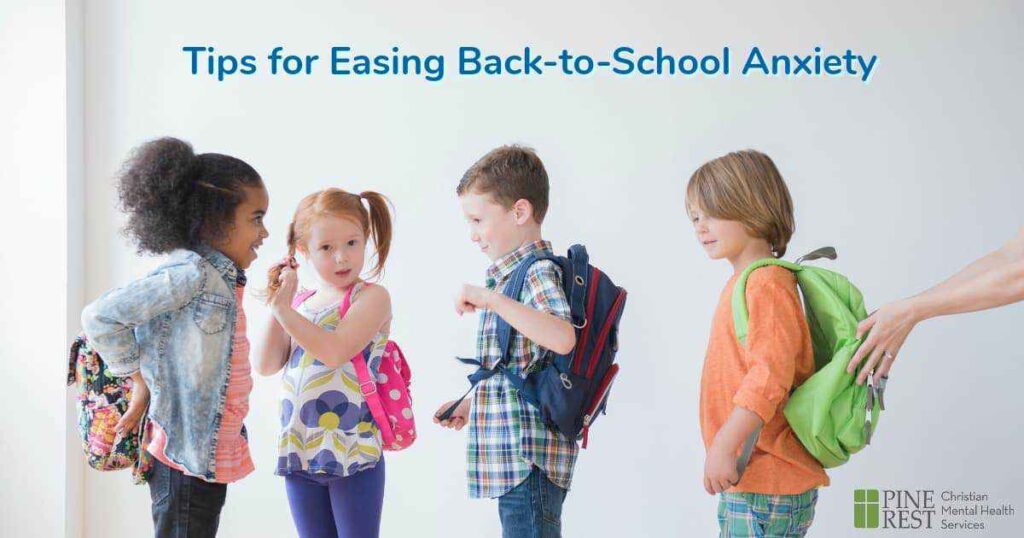Written by Russ Gadzhiev, PhD
“There is only one way to happiness and that is to cease worrying about things which are beyond the power of our will.” – Epictetus
“Anxiety is a thin stream of fear trickling through the mind. If encouraged, it cuts a channel into which all other thoughts are drained.”– Arthur Somers Roche
” Anxiety was born in the very same moment as mankind. And since we will never be able to master it, we will have to learn to live with it— just as we have learned to live with storms.” – Paulo Coelho
It goes without saying that the issues of mental health are receiving more and more attention from scholars and scientists these days. More importantly and encouragingly, an increasing number of teachers and parents are becoming aware of the seriousness of these issues. Teachers are doing their best to encourage the development of emotional intelligence in their students. And parents, who have previously been very reluctant to embrace the idea of emotional intelligence, are finally coming to terms with the importance of this concept.
But despite the wider acceptance of the idea of emotional intelligence and its importance, still there is a lot of work that we must do. Many students are still struggling with anxiety and depression. Many of them are lacking emotional intelligence – they are unable to understand what is happening to them and therefore unable to come up with any coping strategies to combat their affliction. This, in turn, leads to various situations in which people are unable to cope with their emotions.
It is no secret that if someone is struggling with anxiety, they can benefit from the help and support of the people surrounding them. So, in this article, we are going to discuss the following topic: how can you help your friend or classmate if they are struggling with anxiety?
Of course, I should remind you, dear reader, that anxiety is something that ideally a professional should help people with. But your support is also important. So here are some of the things that you can do to help your friend suffering from anxiety.
Support Your Friend
Yes, this piece of advice may sound obvious and simple. But there is a caveat. You need to offer support in a compassionate and thoughtful way. Don’t say: “Of you are fine! It will pass” when your friend is feeling anxious.
This is not supporting your friend and if you say something like this to your friend, they may feel like you are not getting the seriousness of the whole situation. Instead, say: “How can I help you right now?”. Indeed, anxiety can manifest itself in many ways and a person experiencing an anxiety attack may have different symptoms. They may experience different types of anxiety.
So, it is very important to understand what exactly you can do in a particular situation to support your friend. Some people when they are anxious can have different needs. Some of them, for example, may want to be listened to, and some of them may just want you to stay with them until their anxiety attack is over. Some of them may even want you to leave them alone – yes, some people think that they can cope with anxiety on their own. And if you want to help them just do what they ask you.
Help them find support
It is true that those people who find themselves crippled by anxiety may struggle to seek professional help. If you see that your friend’s anxiety is getting out of hand and is really making their life difficult to the point of them being unable to do things that usually do, you may help them seek professional help.
How can you do that? Well, the most obvious thing you can do is to help them set up an appointment with a professional, who specializes in mental health. If your friend does not want to leave their house because of their overwhelming anxiety, you may help them ring their doctor. On the day of the appointment, you can accompany them to the hospital too and sit with them in the waiting room.
It is very likely that their doctor will refer them to a psychotherapist, a professional who specializes in helping people with anxiety to devise coping strategies for themselves so that their anxiety does not have full sway over their lives. Unfortunately, sometimes finding the right psychotherapist may be challenging and this is when your friend may indeed need you most.
You can both have a look at different options and specialists offering psychotherapeutic treatment.
Don’t Forget About Yourself
While helping other people with anxiety is a very commendable enterprise, it can be very taxing and exhausting. Remember, that if their condition affects you negatively to the point that you are not able to help them, then it is not good for both of you. Also, your friend may develop a feeling of guilt if they see that their anxiety is not only affecting them but you as well.
So, there are some things that you can do in that regard. If you and your friend struggling with anxiety have another close friend, he or she may also assume the caring role. At least it will not be too much work for you, and you will be able to recharge your batteries.
Setting boundaries is crucial as you do not want your friend to be entirely dependent on you and never learn how to make their anxiety on their own. Do not allow a feeling of guilt for not offering your friend 24/7 help to take over you as well – if you do you may also find yourself struggling with anxiety and depression.
Do Activities That Boost Mental Health
Anxiety can be a tricky thing to battle but fortunately, there is one very good and fun thing you can both do – exercising. Scientists established long ago the beneficial effects of exercising. Indeed, when we exercise our brain produces special feel-good chemicals called “endorphins”. The more endorphins we have in our brains, the happier we become.
Exercising is even more beneficial if you do that in the company of others. So, offer your friend to go to the nearest gym and sign up for a couple of classes, a cycling class for example. Not only will you get moving and get yourself in a good mood, but you will also be able to socialize with others. This will only make you feel better. There are many “social” types of exercise classes, which may include boxing, swimming, yoga, and others.
But also remember to be gentle with your suggestions. Do not push your friends to do things they do not feel like doing or even more so afraid to do. Indeed, there is a special type of anxiety – “social anxiety” when a person feels extremely uncomfortable or worried when being around other people. Of course, if your friend is suffering from that kind of anxiety, it may be challenging to encourage them to join a gym. So do not be pushy, do everything gently and slowly.
If your friend is entirely against the idea of going to the gym together, you can simply opt for exercising together somewhere in nature. Those people suffering from social anxiety may find the outdoors calming and relaxing. The outdoors could be a perfect place for both of you to unwind and do some light exercise. Again, it is important not to be pushy. If you see that your friend is shuddering at the idea of going too far from home (this is also another and very common type of anxiety) consider finding a place that is not too far. Listen carefully to your friend and do not push them out of their comfort zone. Instead, help them take slow steps to achieve small but consistent progress toward their mental health and well-being.
Although it may sound sad, the reality is that during your life, you are very likely to encounter someone who is struggling with anxiety. You should know that there are various types of anxiety but all of them have several characteristics. The person who is living with anxiety is suffering from excessive fears and worries that make their life unbearable.
Russ Gadzhiev obtained his PhD in history and politics from University of Melbourne. He also holds a master’s degree in International Relations from Moscow State University of International Relations, a top-ranking diplomatic school. Russ is a strong education professional with a history of working in the higher education sector of Australia and effectively communicates with learners from diverse cultural backgrounds. He is enthusiastic about teaching and mentoring, writing, curriculum development, research, information management and public speaking. He is fluent in Russian, English, Spanish and Portuguese.








































